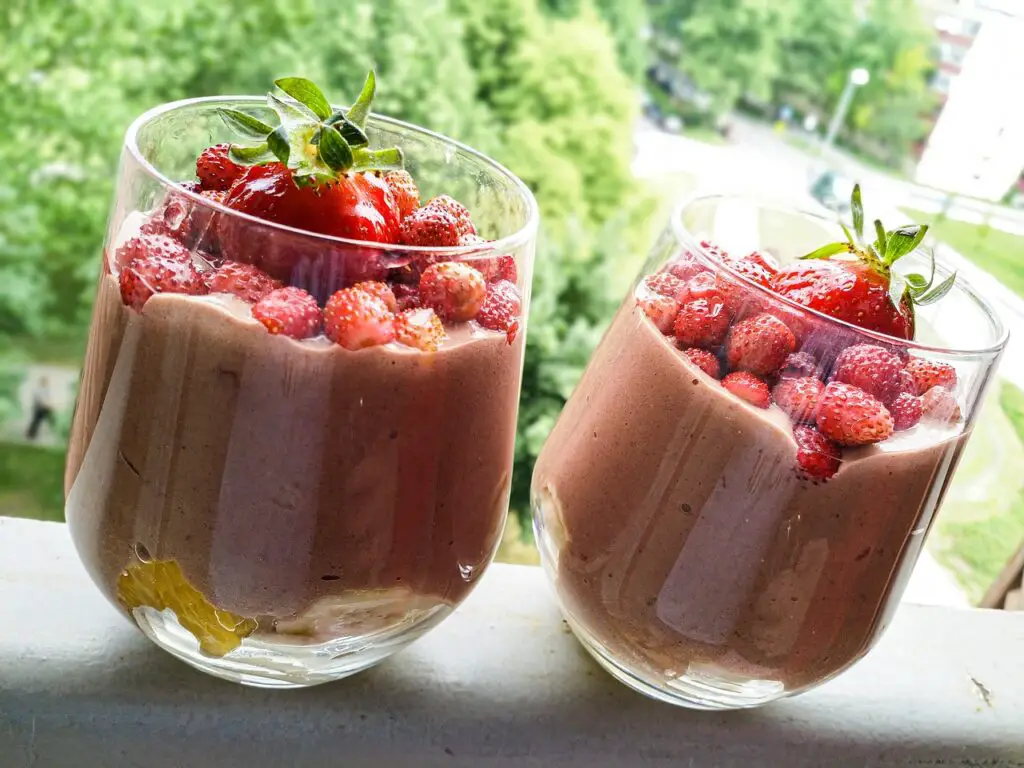Lactose-free protein drinks have become increasingly popular as consumers seek alternatives to traditional dairy-based protein supplements. These beverages are designed for individuals who are lactose intolerant, have a dairy allergy, or simply prefer a plant-based diet. They offer a convenient and effective way to meet protein needs without the digestive discomfort that can accompany lactose consumption. This article explores the benefits, types, and considerations of lactose-free protein drinks.
Benefits of Lactose-Free Protein Drinks
Digestive Comfort: The primary benefit is the avoidance of lactose, a sugar found in milk and dairy products that can cause bloating, gas, and diarrhea in lactose-intolerant individuals.
Inclusivity: They cater to a wide audience, including those following vegan, vegetarian, and dairy-free diets, making it easier for everyone to incorporate high-quality protein into their diet.
Nutritional Variety: Many lactose-free protein drinks are made from plant-based sources such as pea, hemp, rice, and soy, offering a diverse array of vitamins, minerals, and antioxidants in addition to protein.
Weight Management: Protein is known for its ability to provide satiety, which can help in managing weight by reducing the overall calorie intake.
Types of Lactose-Free Protein Drinks
Plant-Based Proteins: These are derived from sources like soy, pea, rice, and hemp. Each type offers a unique nutritional profile, with soy protein being a complete protein, while others might need to be combined to ensure all essential amino acids are consumed.
Egg White Protein Drinks: For those who are not strictly plant-based but are avoiding dairy, egg white protein drinks provide a high-quality, lactose-free protein source.
Beef Protein Isolates: An option for those seeking lactose-free, non-plant-based protein sources. These are derived from beef but are processed to remove fats and carbs, including lactose.
Considerations When Choosing Lactose-Free Protein Drinks
Complete Protein: Ensure the drink contains all nine essential amino acids. Plant-based proteins may need to be combined or fortified.
Sugar Content: Some lactose-free protein drinks may contain added sugars for taste. It’s important to read labels and choose products with minimal added sugars.
Artificial Ingredients: Look for drinks that are free from unnecessary additives, artificial colors, and preservatives.
Allergen Information: Besides lactose, ensure the product does not contain other allergens you might be sensitive to, such as nuts, soy, or gluten.
Taste and Texture: The taste and texture of lactose-free protein drinks can vary significantly. It may take some experimentation to find one that suits your palate.
Lactose-free protein drinks are a versatile and inclusive option for meeting dietary protein needs without the discomfort of lactose intolerance. With the variety of sources and flavors available, individuals can choose products that fit their dietary preferences and nutritional requirements. Always consider the protein quality, added ingredients, and your dietary needs when selecting a lactose-free protein drink. Whether for muscle building, weight management, or simply ensuring adequate protein intake, there’s a lactose-free option out there that can complement any lifestyle or dietary preference.
How to Incorporate Lactose-Free Protein Drinks into Your Diet
Integrating lactose-free protein drinks into your diet can be both enjoyable and beneficial. Here are some practical tips on how to make the most out of these supplements:
Meal Replacement: For busy individuals, a lactose-free protein drink can serve as a quick and nutritious meal replacement, especially when blended with fruits, vegetables, and a healthy fat source like avocado or nuts.
Post-Workout Recovery: Consuming a protein drink after exercise can aid in muscle recovery and growth. The quick absorption of liquid protein is particularly beneficial during the post-workout anabolic window.
Snack Option: A protein drink can be a satisfying mid-day snack, helping you stay full between meals and avoid less healthy snacking options.
Cooking and Baking: Some lactose-free protein powders can be incorporated into recipes for pancakes, muffins, or smoothies, adding a protein boost to your favorite dishes without altering the taste significantly.
Trends and Innovations in Lactose-Free Protein Drinks
The market for lactose-free protein drinks is evolving rapidly, with new trends and innovations making these products more appealing and effective:
Superfood Ingredients: Many brands are now including superfoods like spirulina, chlorella, and other greens, offering additional health benefits beyond protein.
Probiotics and Digestive Enzymes: To enhance gut health, some lactose-free protein drinks are fortified with probiotics and digestive enzymes, aiding in digestion and nutrient absorption.
Eco-Friendly Packaging: As consumers become more environmentally conscious, brands are adopting sustainable packaging solutions to reduce their carbon footprint.
Flavor Innovations: Gone are the days of bland or unpleasant-tasting protein drinks. New flavor innovations mean that lactose-free protein drinks now come in a variety of delicious tastes, from classic chocolate and vanilla to more exotic options like matcha or turmeric latte.
The Future of Lactose-Free Protein Drinks
The future looks bright for lactose-free protein drinks as demand for plant-based and allergen-free products continues to grow. Advances in food technology will likely lead to improvements in taste, texture, and nutritional content, making these drinks even more indistinguishable from their dairy counterparts. As the market expands, we can expect to see a broader range of options catering to specific dietary needs and preferences, including organic, non-GMO, and clean label products.
Lactose-free protein drinks offer a versatile, inclusive, and convenient solution for meeting your protein requirements. Whether you’re lactose intolerant, following a specific diet, or simply exploring healthier lifestyle options, these drinks provide a valuable source of nutrition. By choosing the right product for your needs and incorporating it wisely into your diet, you can enjoy the numerous benefits of protein without the discomfort associated with lactose. As the market for these products continues to evolve, consumers will have access to an even wider range of options to support their health and wellness goals.
Frequently Asked Questions (FAQs) about Lactose-Free Protein Drinks
Can lactose-free protein drinks provide the same level of nutrition as dairy-based protein drinks?
Yes, lactose-free protein drinks can offer comparable, if not superior, nutritional profiles to dairy-based ones. Many are designed to be complete protein sources, containing all essential amino acids, and are often fortified with vitamins, minerals, and other beneficial compounds.
Are all plant-based protein drinks lactose-free?
Yes, all plant-based protein drinks are inherently lactose-free since they are derived from non-dairy sources. However, it’s still important to check labels for any added ingredients that may contain lactose or other allergens.
How do I know if a lactose-free protein drink is right for me?
If you are lactose intolerant, allergic to dairy, or follow a plant-based diet, lactose-free protein drinks can be an excellent addition to your diet. They are also suitable for those looking to diversify their protein sources or who prefer products with a potentially lower environmental impact.
Can lactose-free protein drinks help with weight loss?
Protein is known for its satiating effect, which can help reduce overall calorie intake by making you feel fuller for longer. Therefore, lactose-free protein drinks can be a valuable tool in a weight management or loss plan, especially when used as a meal replacement or snack.
Are there any side effects to consuming lactose-free protein drinks?
Most people can consume lactose-free protein drinks without any adverse effects. However, some individuals may experience digestive discomfort if they are sensitive to specific ingredients such as soy or artificial sweeteners. It’s important to choose a product that aligns with your dietary tolerances and preferences.
How much protein do I need, and can I get enough from lactose-free drinks?
The amount of protein needed varies based on factors like age, sex, weight, and activity level.
Generally, it’s recommended that adults consume 0.8 grams of protein per kilogram of body weight per day, though this may be higher for active individuals or athletes. Lactose-free protein drinks can significantly contribute to meeting these needs, especially when combined with other protein sources in your diet.
Can lactose-free protein drinks be used by children?
While lactose-free protein drinks can be safe for children, it’s essential to consult a healthcare provider before introducing them into a child’s diet. Children have different nutritional needs, and protein supplements are not typically necessary for those who eat a balanced diet.
How should I store lactose-free protein drinks?
Unopened lactose-free protein drinks can be stored in a cool, dry place. Once opened, they should be refrigerated and consumed within the timeframe specified by the manufacturer to ensure freshness and prevent spoilage.
Can I make my own lactose-free protein drinks at home?
Absolutely! Making your lactose-free protein drink at home allows you to control the ingredients and tailor the flavor to your liking. Use lactose-free protein powders, such as pea, rice, or hemp, and blend with your choice of non-dairy milk, fruits, and vegetables for a nutritious and personalized drink.
Are lactose-free protein drinks environmentally friendly?
Many lactose-free protein drinks, especially those derived from plant sources, have a lower environmental footprint than dairy-based protein drinks. Brands that prioritize sustainable sourcing and packaging further minimize environmental impact, making lactose-free options an eco-conscious choice for consumers.




